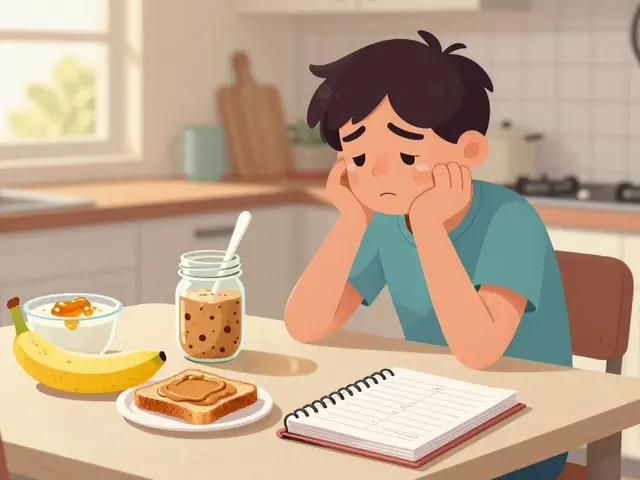Coping Strategies for Everyday Health Challenges
Feeling overwhelmed by meds, anxiety, or just the day‑to‑day grind? You’re not alone. Most of us juggle prescriptions, work pressures, and personal worries without a cheat sheet. The good news is that simple habits can make a huge difference. Below are down‑to‑earth tactics you can start using right now to feel steadier, more in control, and less rattled.
Practical Ways to Manage Medication Side Effects
Side effects can turn a helpful pill into a daily nuisance. First, always read the label – it tells you when to take the drug, with food or on an empty stomach. If a medicine makes your stomach churn, try taking it with a small snack instead of right after a big meal. Staying hydrated helps too; water dilutes the concentration in your gut and can ease nausea.
Keep a side‑effect diary. Jot down what you take, when you take it, and any odd feelings that pop up. Over time patterns appear, and you’ll have concrete info to share with your pharmacist or doctor. Sometimes a tiny dose adjustment or a switch to a different brand solves the problem without changing the whole treatment plan.
If dry mouth or insomnia creeps in, simple home remedies can help. Chewing sugar‑free gum or sipping herbal tea before bed often reduces throat irritation and calms the nervous system. For dizziness, stand up slowly and keep a glass of water handy – dehydration is a hidden trigger for many drugs.
Lifestyle Tricks for Daily Stress Relief
Stress isn’t just “in your head”; it can worsen blood pressure, gut issues, and even how you absorb medication. One quick reset is the 4‑7‑8 breathing technique: inhale through your nose for four counts, hold seven, exhale slowly for eight. Do this three times before a meeting or when a panic wave hits – you’ll notice a calmer pulse within seconds.
Movement beats sitting still. You don’t need a gym; a 10‑minute walk around the block after lunch boosts circulation and releases endorphins that fight anxiety. If time is tight, try “micro‑stretch” breaks: stand, reach for the ceiling, roll your shoulders back, and repeat three times every hour.
Nutrition plays a quiet role in mood. Swap one sugary snack a day for a handful of nuts or a piece of fruit. The steady glucose from complex carbs steadies energy spikes that often lead to irritability. Pair it with a glass of water – dehydration can masquerade as stress.
Lastly, set micro‑goals. Instead of “I’ll get healthy,” try “I’ll drink two extra glasses of water today.” Small wins build confidence and create momentum for larger changes without feeling crushed by the scale of the task.
Putting these tips into practice doesn’t require a complete life overhaul. Pick one or two ideas that feel doable, test them for a week, and notice how you feel. The more you experiment, the faster you’ll discover what truly works for your body and mind. Remember, coping isn’t about perfection; it’s about finding workable habits that keep you moving forward.

Coping Strategies for Long-Term Medication Use: Boost Adherence and Health Outcomes
Learn practical coping strategies for chronic medication use. Boost adherence, reduce costs, and improve health with expert-backed tips on problem-solving, emotion management, and team-based care.

Coping with Pheochromocytoma: Strategies for Reducing Stress
Living with pheochromocytoma can be challenging, but there are ways to reduce stress and improve our daily lives. One crucial strategy is to maintain a healthy lifestyle, including exercise, a balanced diet, and proper sleep. It's also important to stay informed about our condition and seek support from friends, family, or support groups. We should also work closely with our healthcare team to monitor our symptoms and develop a personalized treatment plan. Lastly, engaging in relaxation techniques such as meditation or deep breathing exercises can help manage stress and lower anxiety levels.





